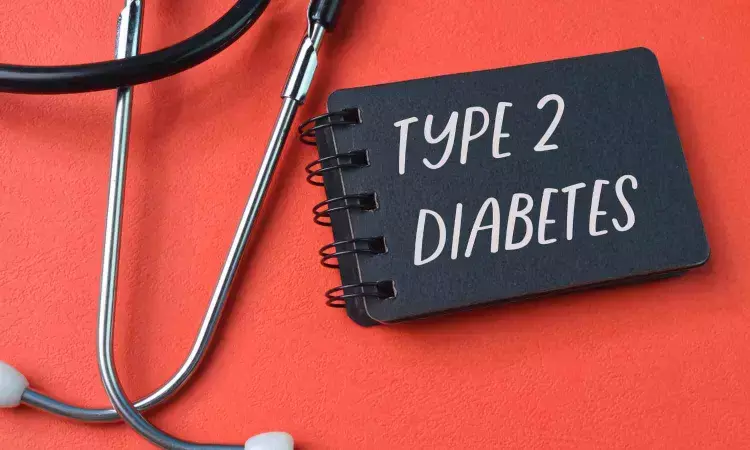- Home
- Medical news & Guidelines
- Anesthesiology
- Cardiology and CTVS
- Critical Care
- Dentistry
- Dermatology
- Diabetes and Endocrinology
- ENT
- Gastroenterology
- Medicine
- Nephrology
- Neurology
- Obstretics-Gynaecology
- Oncology
- Ophthalmology
- Orthopaedics
- Pediatrics-Neonatology
- Psychiatry
- Pulmonology
- Radiology
- Surgery
- Urology
- Laboratory Medicine
- Diet
- Nursing
- Paramedical
- Physiotherapy
- Health news
- Fact Check
- Bone Health Fact Check
- Brain Health Fact Check
- Cancer Related Fact Check
- Child Care Fact Check
- Dental and oral health fact check
- Diabetes and metabolic health fact check
- Diet and Nutrition Fact Check
- Eye and ENT Care Fact Check
- Fitness fact check
- Gut health fact check
- Heart health fact check
- Kidney health fact check
- Medical education fact check
- Men's health fact check
- Respiratory fact check
- Skin and hair care fact check
- Vaccine and Immunization fact check
- Women's health fact check
- AYUSH
- State News
- Andaman and Nicobar Islands
- Andhra Pradesh
- Arunachal Pradesh
- Assam
- Bihar
- Chandigarh
- Chattisgarh
- Dadra and Nagar Haveli
- Daman and Diu
- Delhi
- Goa
- Gujarat
- Haryana
- Himachal Pradesh
- Jammu & Kashmir
- Jharkhand
- Karnataka
- Kerala
- Ladakh
- Lakshadweep
- Madhya Pradesh
- Maharashtra
- Manipur
- Meghalaya
- Mizoram
- Nagaland
- Odisha
- Puducherry
- Punjab
- Rajasthan
- Sikkim
- Tamil Nadu
- Telangana
- Tripura
- Uttar Pradesh
- Uttrakhand
- West Bengal
- Medical Education
- Industry
Novel procedure ReCET combined with semaglutide eliminates insulin dependence in type 2 diabetes: Study

Groundbreaking research presented today at UEG Week 2024 reveals a promising new treatment strategy for type 2 diabetes (T2D) that could significantly reduce or even eliminate the need for insulin therapy.
This innovative approach, which combines a novel procedure known as ReCET (Re-Cellularization via Electroporation Therapy) with semaglutide, resulted in the elimination of insulin therapy for 86% of patients.
Globally, T2D affects 422 million people, with obesity recognised as a significant risk factor. While insulin therapy is commonly used to manage blood sugar levels in T2D patients, it can result in side effects such as weight gain and further complicate diabetes management. A need therefore exists for alternative treatment strategies.
The first-in-human study included 14 participants aged 28 to 75 years, with body mass indices ranging from 24 to 40 kg/m². Each participant underwent the ReCET procedure under deep sedation, a treatment intended to improve the body’s sensitivity to its own insulin. Following the procedure, participants adhered to a two-week isocaloric liquid diet, after which semaglutide was gradually titrated up to 1mg/week.
Remarkably, at the 6- and 12-month follow-up, 86% of participants (12 out of 14) no longer required insulin therapy, and this success continued through the 24-month follow-up. In these cases, all patients maintained glycaemic control, with HbA1c levels remaining below 7.5%.
The maximum dose of semaglutide was well-tolerated by 93% of participants, one individual could not increase to the maximum dose due to nausea. All patients successfully completed the ReCET procedure, and no serious adverse effects were reported.
Dr Celine Busch, lead author of the study, commented, “These findings are very encouraging, suggesting that ReCET is a safe and feasible procedure that, when combined with semaglutide, can effectively eliminate the need for insulin therapy.”
“Unlike drug therapy, which requires daily medication adherence, ReCET is compliance-free, addressing the critical issue of ongoing patient adherence in the management of T2D. In addition, the treatment is disease-modifying: it improves the patient’s sensitivity to their own (endogenous) insulin, tackling the root cause of the disease, as opposed to currently available drug therapies, that are at best disease-controlling.”
Looking ahead, the researchers plan to conduct larger randomised controlled trials to further validate these findings. Dr Busch added, “We are currently conducting the EMINENT-2 trial with the same inclusion and exclusion criteria and administration of semaglutide, but with either a sham procedure or ReCET. This study will also include mechanistic assessments to evaluate the underlying mechanism of ReCET.”
Reference:
Novel procedure combined with semaglutide may eliminate insulin dependency in type 2 diabetes, Beyond, Meeting: UEG Week 2024.
Dr Kamal Kant Kohli-MBBS, DTCD- a chest specialist with more than 30 years of practice and a flair for writing clinical articles, Dr Kamal Kant Kohli joined Medical Dialogues as a Chief Editor of Medical News. Besides writing articles, as an editor, he proofreads and verifies all the medical content published on Medical Dialogues including those coming from journals, studies,medical conferences,guidelines etc. Email: drkohli@medicaldialogues.in. Contact no. 011-43720751


